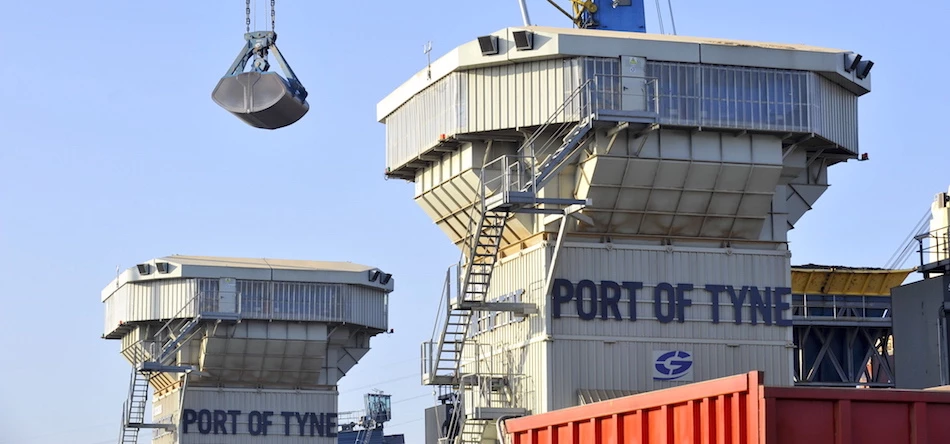
Return to growth for Port of Tyne as revenues hit £47m
The Port of Tyne has announced a return to growth two years after the loss of “substantive volumes” of imported coal.
Turnover at the facility rose to £47m in 2017, with pre-tax profits coming in at £2m and EBITDA hitting £8m.
Four of the port’s five business areas saw increased revenues in 2017. The fifth, it said, remains steady.
The port achieved an increase in the number of cars handled, retaining its status as the UK’s second biggest car exporting hub.
Elsewhere, its International Passenger Terminal broke its own record with 52 cruise ships bringing 120,000 passengers last year. It also handled 600,000 DFDS ferry passengers, its highest to date.
Container volumes rose 8%, helped by increased volumes of manufacturing parts, recovered materials and tea exported to Canada. The port now handles more than 40% of the UK’s raw tea imports.
A slight dip in bulk cargo volumes was attributed to wood pellet handling facilities going live at other ports. But the impact of this was more than offset, the port said, by revenues from offshore renewable energy services.
Last year saw more than £100m invested in the port’s south bank estate at South Shields, where new facilities are being constructed to handle expanded volumes of wood pellet.
The port’s Gross Value Added now stands at £700m, including £53m for the tourism sector, with its operations supporting 14,000 North East jobs.
Alongside the growth, the Port of Tyne has confirmed plans for CEO Andrew Moffat to step down at the end of the year following a decade at the helm.
More than £200m has been invested in the facility’s infrastructure and people under Andrew’s leadership.
Andrew said: “For 2018, we have budgeted for significant increases with EBITDA expected to rise by over 50% to £13m. And I’m delighted to be able to report that we are currently on target to achieve this.”
Port of Tyne chair Lucy Armstrong commented: “In 2017, the business continued its transition from the impact of the loss of substantive volumes of imported coal, towards increased wood pellet cargoes which will ensure the business returns to its growth trajectory.
“The construction of major new facilities for Lynemouth Power Ltd which progressed to commissioning during the year will facilitate this shift, and support increased volumes over a ten year period.”
Discussing his decision to step down, Andrew added: “I was proud to be appointed chief executive of the Port of Tyne 10 years ago and have been extremely fortunate to have had the opportunity to make my own personal contribution to the development and growth of this well-established and respected business.
“I will be leaving knowing that the Port is in much better shape than when I joined and it is an appropriate time to pass the leadership to someone who will look, I’m sure, to drive further growth in the future. I wish whoever that person is every success.”
Lucy said: “[Andrew] is leaving the business in a much improved position and in shape to build the next stage of the Port’s development.”
Looking to promote your product/service to SME businesses in your region? Find out how Bdaily can help →
Enjoy the read? Get Bdaily delivered.
Sign up to receive our daily bulletin, sent to your inbox, for free.








 Raising the bar to boost North East growth
Raising the bar to boost North East growth
 Navigating the messy middle of business growth
Navigating the messy middle of business growth
 We must make it easier to hire young people
We must make it easier to hire young people
 Why community-based care is key to NHS' future
Why community-based care is key to NHS' future
 Culture, confidence and creativity in the North East
Culture, confidence and creativity in the North East
 Putting in the groundwork to boost skills
Putting in the groundwork to boost skills
 £100,000 milestone drives forward STEM work
£100,000 milestone drives forward STEM work
 Restoring confidence for the economic road ahead
Restoring confidence for the economic road ahead
 Ready to scale? Buy-and-build offers opportunity
Ready to scale? Buy-and-build offers opportunity
 When will our regional economy grow?
When will our regional economy grow?
 Creating a thriving North East construction sector
Creating a thriving North East construction sector
 Why investors are still backing the North East
Why investors are still backing the North East